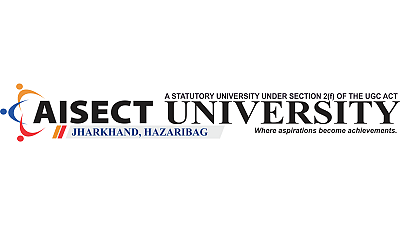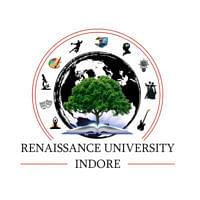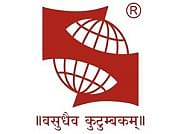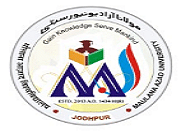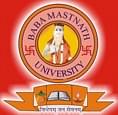Introduction about PhD Rural Development
A Ph.D. in Rural Development from the best university in India is an advanced academic degree program
designed to equip students with the knowledge, skills, and methodologies to
address the multifaceted challenges and opportunities present in rural areas.
This interdisciplinary field integrates concepts from economics, sociology,
political science, environmental studies, public health, and other disciplines
to understand and improve the social, economic, and environmental conditions of
rural communities.
Students pursuing a Ph.D. in Rural Development typically engage in
rigorous research, exploring topics such as agricultural sustainability, rural
entrepreneurship, community development, natural resource management, land use
planning, and poverty alleviation strategies tailored to rural contexts. They
often work closely with rural communities, governments, non-profit
organizations, and international agencies to develop innovative solutions to
complex rural development issues.
The doctoral program usually involves coursework, seminars,
comprehensive exams, and the completion of a dissertation based on original
research. Graduates of a Ph.D. program in Rural Development are prepared for
careers in academia, research institutions, government agencies, international
development organizations, and non-profit sectors, where they can contribute
their expertise to promote sustainable development and improve the well-being
of rural populations worldwide.
How can I apply for admission to Ph.D Rural
Development ?
Applying for admission at the best 5 Ph.D. program in Rural Development colleges in India typically involves several steps. Here's a general
outline of the process:
·
Research Programs: Begin by researching
universities and institutions that offer Ph.D. programs in Rural Development.
Look for programs that align with your academic interests, career goals, and
geographic preferences. Consider factors such as faculty expertise, research
opportunities, funding availability, and program reputation.
·
Review Admission Requirements: Each
program will have specific admission requirements, which may include a minimum
GPA, standardized test scores (such as the GRE), letters of recommendation, a
statement of purpose, and academic transcripts. Carefully review the admission
requirements for each program you're interested in to ensure you meet the
criteria.
·
Prepare Application Materials: Gather
the necessary application materials, which typically include:
·
Transcripts: Request official transcripts from all
colleges and universities you have attended.
·
Standardized Test Scores: Take any required
standardized tests (such as the GRE) and arrange for your scores to be sent to
the institutions you're applying to.
·
Letters of Recommendation: Secure letters of
recommendation from academic or professional references who can speak to your
qualifications and potential for success in a Ph.D. program.
·
Statement of Purpose: Write a compelling statement
of purpose that outlines your academic background, research interests, career
goals, and reasons for pursuing a Ph.D. in Rural Development.
·
Resume or Curriculum Vitae (CV): Prepare a resume
or CV that highlights your academic achievements, research experience, relevant
work experience, and any publications or presentations.
·
Submit Applications: Complete the online
application forms for each program you're applying to, ensuring that you submit
all required materials by the application deadlines. Pay attention to any
supplementary materials or additional requirements specified by each program.
·
Interviews: Some programs may require
interviews as part of the admissions process. Prepare for interviews by
familiarizing yourself with the program, articulating your research interests
and goals, and discussing how your background and experiences align with the
program's objectives.
·
Financial Aid and Funding: Explore
opportunities for financial aid and funding, such as scholarships, fellowships,
assistantships, and research grants. Many Ph.D. programs offer funding packages
to support students during their doctoral studies.
·
Decision and Enrollment: After
completing the application process, you will receive admission decisions from
the programs to which you applied. Once you have been accepted to a program,
carefully consider your options and make an informed decision about where to
enroll.
What is admission process for Ph.D Rural
Development ?
The admission process for a Ph.D. program in Rural Development typically
involves several stages, including:
Ø Research and
Exploration: Before applying, research different universities and institutions
offering Ph.D. programs in Rural Development. Look into faculty expertise,
program curriculum, research opportunities, and any specializations available
within the program. Determine which programs align best with your academic
interests and career goals.
Ø Meet Admission
Requirements: Review the admission requirements for each program you're interested
in. Common requirements may include:
Ø A master's
degree in a related field (though some programs may accept applicants with only
a bachelor's degree)
Ø Minimum
GPA requirements
Ø Standardized
test scores (such as the GRE), although some programs may waive this
requirement or place less emphasis on it
Ø Letters of
recommendation from academic or professional references
Ø A
statement of purpose outlining your research interests, academic background,
and career objectives
Ø Academic
transcripts from previous institutions
Ø Prepare Application
Materials: Gather all required application materials, which may include
transcripts, standardized test scores, letters of recommendation, a statement
of purpose, and a resume or curriculum vitae (CV). Ensure that you meet all
formatting and submission requirements for each program.
Ø Submit Applications: Complete
the online application forms for the programs you wish to apply to. Pay close
attention to application deadlines, as they may vary between programs. Submit
all required materials, including transcripts, test scores, letters of
recommendation, and your statement of purpose, by the specified deadlines.
Ø Interviews (if
required): Some programs may require applicants to participate in interviews as
part of the admissions process. If you are invited for an interview, be
prepared to discuss your research interests, academic background, and career
aspirations. Treat the interview as an opportunity to showcase your
qualifications and enthusiasm for the program.
Ø Notification of
Admission Decision: After completing the application process, you
will receive notification of admission decisions from the programs you applied
to. Admission decisions may be communicated via email, postal mail, or through
an online application portal. Be sure to carefully review any communication
from the programs and follow any instructions provided.
Ø Enrollment: Upon
acceptance into a Ph.D. program in Rural Development, you will typically be
required to confirm your enrollment by submitting any required forms and
deposits by the specified deadline. You may also need to complete additional
enrollment steps, such as registering for classes and arranging housing if
necessary.
It's important to carefully follow the instructions provided by each
program and to submit all application materials by the specified deadlines.
Additionally, don't hesitate to reach out to admissions offices or program
coordinators if you have any questions or need clarification on any aspect of
the application process.
What is eligibility for admission at Ph.D Rural
Development ?
The eligibility criteria for admission to a Ph.D. program in Rural
Development can vary depending on the institution and the specific program.
However, there are some common eligibility requirements that applicants
typically need to meet. Here's a general overview:
ü Educational Background: Most Ph.D. programs in Rural Development
require applicants to have a master's degree in a relevant field, such as Rural
Development, Agriculture, Environmental Studies, Sociology, Economics, Public
Policy, or a related discipline. Some programs may accept applicants with only
a bachelor's degree, particularly if they have exceptional academic
qualifications and relevant research or professional experience.
ü Minimum GPA: Many programs have a minimum GPA
requirement for admission. This requirement may vary, but a GPA of 3.0 or
higher on a 4.0 scale is common. Some programs may consider GPA in specific
coursework related to rural development or research methods more heavily than
overall GPA.
ü Standardized Test Scores: Some programs may require applicants to
submit scores from standardized tests, such as the Graduate Record Examination
(GRE) or other relevant exams. However, an increasing number of programs are
moving away from requiring standardized test scores, or they may waive this
requirement for applicants with strong academic or professional backgrounds.
ü Research Experience: Demonstrated research experience, either
through previous academic research projects, professional experience, or
publications, is often valued in Ph.D. applicants. Applicants may be asked to
provide a research statement or writing sample to demonstrate their ability to
conduct independent research.
ü Letters of Recommendation: Most Ph.D. programs require applicants to
submit letters of recommendation from academic or professional references who
can speak to their academic abilities, research potential, and suitability for
doctoral study. The number of required letters may vary by program, but
typically, applicants are asked to submit 2-3 letters.
ü Statement of Purpose: Applicants are usually required to submit
a statement of purpose or personal statement outlining their academic
background, research interests, career goals, and reasons for pursuing a Ph.D.
in Rural Development. This statement provides an opportunity for applicants to
articulate their motivations and qualifications for doctoral study.
ü English Language Proficiency: For international applicants whose native
language is not English, proof of English language proficiency may be required.
This is typically demonstrated through standardized tests such as the TOEFL
(Test of English as a Foreign Language) or IELTS (International English
Language Testing System).





